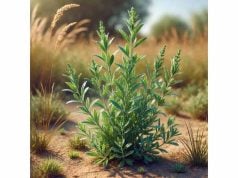Ramsons, often known as wild garlic or bear’s garlic, is a cherished wild herb renowned for its distinctive aroma, culinary versatility, and robust medicinal properties. Historically foraged across European woodlands, ramsons have long been employed in traditional remedies to support cardiovascular health, boost immunity, enhance digestion, and reduce inflammation. Rich in active compounds such as organosulfur compounds, flavonoids, and essential vitamins and minerals, this nutrient-dense herb offers a multifaceted spectrum of health benefits. Its potent bioactive profile makes ramsons a valuable addition to both modern culinary creations and natural therapeutic practices, bridging age-old herbal wisdom with contemporary health trends.
Table of Contents
- Bountiful Botanical Overview and Identification
- Phytochemical Profile and Active Compound Analysis
- Holistic Health Benefits and Essential Qualities
- Culinary & Medicinal Applications, Dosage, and Safety
- Scientific Research and Notable Study Insights
- Frequently Asked Questions
Bountiful Botanical Overview and Identification
Ramsons, botanically identified as Allium ursinum, belong to the Amaryllidaceae family and are widely distributed across the woodlands of Europe and parts of Asia. Also known colloquially as wild garlic or bear’s garlic, ramsons thrive in damp, shaded deciduous forests and along woodland edges where nutrient-rich soils and moderate climates prevail. This perennial plant emerges in early spring, heralding the onset of warmer days with its lush, broad, lanceolate leaves and clusters of small, star-shaped white to pale pink flowers.
The leaves of ramsons are soft, bright green, and exude a potent garlicky aroma when crushed. Their flavor, which is milder yet strikingly similar to cultivated garlic, has made them a favored ingredient in gourmet cooking and traditional herbal medicine. Ramsons reproduce both vegetatively and by seed, forming dense patches in suitable habitats. Their ability to thrive under the forest canopy is attributed to their deep-root systems, which effectively absorb water and nutrients even in competitive environments.
In traditional foraging communities, ramsons have held significant cultural and culinary importance. They were historically gathered in the wild during the early spring months to celebrate seasonal renewal and are sometimes associated with folklore and local legends. Botanical studies have revealed that the plant’s phenology is closely linked with seasonal weather patterns, with flowering and leaf emergence triggered by rising temperatures and increased moisture levels. This seasonal burst of growth not only adorns the woodland floor with vibrant greenery but also provides vital nourishment for early pollinators.
Modern botanical research into ramsons has focused on its adaptability, genetic diversity, and potential for cultivation. Conservation efforts in many regions now aim to sustainably harvest wild ramsons to preserve natural populations while also exploring methods for domestic cultivation. As interest in wild edibles continues to grow among chefs and health enthusiasts, ramsons are increasingly recognized as a sustainable and nutritious crop that bridges the gap between traditional herbal wisdom and contemporary culinary innovation.
Ultimately, the botanical profile and identification of ramsons underscore its significance as both a culinary delight and a natural remedy. Its robust growth, striking appearance, and distinctive flavor have not only made it a symbol of springtime renewal but also a subject of ongoing ecological and nutritional research.
Phytochemical Profile and Active Compound Analysis
The remarkable health benefits of ramsons stem from its rich phytochemical composition. A synergy of bioactive compounds contributes to its therapeutic potential, making it a powerhouse of natural medicine. Below is a detailed exploration of the primary active compounds found in ramsons, along with insights into their specific roles and benefits.
- Organosulfur Compounds
Ramsons are exceptionally rich in organosulfur compounds, which are responsible for their pungent aroma and distinctive flavor. These compounds, including allicin and alliin, are renowned for their potent antimicrobial, anti-inflammatory, and cardioprotective properties. When the plant’s tissues are damaged—such as during chopping or crushing—enzymatic processes convert alliin into allicin, a compound known to enhance immune function by reducing oxidative stress and inhibiting the proliferation of harmful bacteria. - Flavonoids and Polyphenols
A significant group of antioxidants in ramsons is composed of flavonoids, including quercetin, kaempferol, and myricetin, as well as various polyphenolic compounds. These molecules play a crucial role in neutralizing free radicals, thereby protecting cells from oxidative damage. Their anti-inflammatory actions also contribute to the overall reduction of chronic inflammation, which is a common underlying factor in many modern diseases such as heart disease, diabetes, and neurodegenerative disorders. - Vitamins
Ramsons provide a rich array of vitamins, notably vitamin C, vitamin B6, and folate. Vitamin C is indispensable for collagen synthesis, immune defense, and skin health, while vitamin B6 is involved in amino acid metabolism and neurotransmitter synthesis. Folate is essential for DNA synthesis and repair. The synergistic effects of these vitamins further enhance the antioxidant and metabolic benefits provided by the herb. - Essential Minerals
Critical minerals found in ramsons include potassium, calcium, magnesium, and iron. Potassium plays a pivotal role in maintaining healthy blood pressure and proper nerve function, while calcium and magnesium are essential for bone structure, muscle contractions, and enzymatic reactions. Iron is necessary for the production of hemoglobin and oxygen transport throughout the body. Together, these minerals support overall physical strength and cellular health. - Dietary Fiber and Prebiotics
The dietary fiber content in ramsons contributes significantly to digestive health. This fiber acts as a prebiotic, fostering a healthy gut microbiome by promoting the growth of beneficial bacteria. A balanced gut flora is crucial for nutrient absorption, effective detoxification, and overall immune system support. The fiber in ramsons also aids in maintaining healthy blood sugar levels and regulating appetite. - Other Bioactive Molecules
In addition to the key compounds listed above, ramsons contain trace amounts of other bioactive substances such as saponins, tannins, and carotenoids. Saponins are known for their ability to lower cholesterol and support immune function, while tannins contribute to the herb’s astringent properties and help in soothing gastrointestinal irritation. Carotenoids, which impart a subtle color to the plant, serve as antioxidants and support eye health.
The collective action of these bioactive constituents underpins the diverse medicinal properties of ramsons. Their synergistic interplay results in robust antioxidant, anti-inflammatory, and immunomodulatory effects, which are essential for combating oxidative stress and promoting overall health. Advanced analytical techniques, including high-performance liquid chromatography (HPLC) and mass spectrometry, have further elucidated the concentration and activity of these compounds, paving the way for standardized extracts that maximize their therapeutic potential.
Holistic Health Benefits and Essential Therapeutic Qualities
Ramsons offer an impressive array of health benefits that extend across various physiological systems. The herb’s unique combination of bioactive compounds translates into a holistic approach to wellness, addressing issues ranging from cardiovascular health to digestive support and beyond. Here, we delve into the core therapeutic qualities of ramsons and discuss how they contribute to overall health.
Cardiovascular Health Support
The potent organosulfur compounds present in ramsons have long been associated with cardiovascular benefits. These compounds help improve blood circulation, lower blood pressure, and reduce the risk of arterial plaque formation. By modulating cholesterol levels—specifically, lowering LDL (bad cholesterol) and elevating HDL (good cholesterol)—ramsons can enhance vascular health and decrease the risk of heart disease. Additionally, the antioxidant properties derived from its flavonoids help protect the heart by mitigating oxidative damage.
Anti-inflammatory and Antioxidant Effects
Inflammation is a common factor in many chronic conditions, and the ability to combat it is essential for maintaining long-term health. Ramsons are loaded with antioxidants such as polyphenols and flavonoids, which work together to neutralize free radicals and reduce oxidative stress at the cellular level. This anti-inflammatory action is particularly beneficial for conditions such as arthritis, metabolic syndrome, and even certain neurodegenerative diseases, offering a natural means to manage inflammation and protect against tissue damage.
Immune System Enhancement
A robust immune system is essential for warding off infections and ensuring overall well-being. The combination of organosulfur compounds, vitamins, and minerals in ramsons acts synergistically to enhance immune function. These nutrients support the proliferation and activity of immune cells, aiding in the body’s natural defense mechanisms. Regular inclusion of ramsons in the diet may help fortify immune responses, making it easier for the body to fight off infections and recover from illnesses.
Metabolic Regulation and Energy Boost
Ramsons are an excellent source of B-complex vitamins and dietary fiber, both of which are critical for healthy metabolism. The B vitamins facilitate the conversion of food into energy, ensuring a sustained energy supply throughout the day. Moreover, the fiber in ramsons helps to regulate blood sugar levels, promoting metabolic balance and reducing the likelihood of energy spikes and crashes. This combination of nutrients makes ramsons an ideal food for supporting overall vitality and managing weight.
Digestive and Gut Health
The prebiotic fiber content in ramsons plays a crucial role in maintaining a balanced gut microbiome. A healthy gut is essential for optimal digestion, nutrient absorption, and immune function. By promoting the growth of beneficial bacteria, ramsons help improve digestive efficiency, alleviate constipation, and contribute to a healthier overall gastrointestinal environment. This gut-friendly quality not only aids digestion but also helps in detoxification processes, further supporting overall health.
Neuroprotective and Cognitive Benefits
Emerging evidence suggests that the antioxidants found in ramsons may offer protective effects for the brain. By reducing oxidative stress and inflammation in neural tissues, these bioactive compounds may help preserve cognitive function and support mental clarity. Although further research is needed to fully elucidate these effects, preliminary findings point toward a potential role for ramsons in mitigating age-related cognitive decline and promoting overall brain health.
Skin and Anti-Aging Support
The antioxidant and anti-inflammatory properties of ramsons extend to the skin, where they help combat the effects of environmental stressors such as UV radiation and pollution. Regular consumption or topical application of ramp extracts can promote collagen synthesis, enhance skin hydration, and reduce the appearance of fine lines and wrinkles. These benefits make ramsons a promising ingredient in both nutritional and cosmetic formulations aimed at maintaining youthful, radiant skin.
Detoxification and Cellular Integrity
The combination of vitamins, minerals, and antioxidants in ramsons supports the body’s natural detoxification processes. By neutralizing toxins and free radicals, ramsons help protect cellular structures and promote overall cellular health. This detoxification effect is essential for maintaining long-term vitality and preventing the buildup of harmful substances that can lead to chronic diseases.
In summary, the holistic health benefits of ramsons are far-reaching, supporting cardiovascular, immune, metabolic, digestive, cognitive, and dermatological health. Their diverse range of bioactive compounds works in concert to provide a multifaceted approach to wellness, making ramsons a valuable natural remedy for enhancing overall quality of life.
Culinary & Medicinal Applications, Dosage Guidelines, and Safety
Ramsons are celebrated not only for their health-promoting properties but also for their culinary versatility. As both a wild edible and a natural remedy, ramsons can be incorporated into daily routines in various forms. Whether used raw in fresh salads or processed into extracts and supplements, it is essential to follow proper guidelines to maximize benefits and minimize any risks.
Culinary Applications
Ramsons have been a favorite ingredient in traditional European kitchens, renowned for their unique, garlicky flavor that lends itself to both raw and cooked dishes. Some popular culinary uses include:
- Fresh Salads:
Young ramson leaves are often added raw to mixed green salads. Their delicate, pungent taste complements other vegetables and can brighten the flavor profile of a dish. - Sautéed Dishes:
Lightly sautéing ramsons in olive oil preserves their nutritional integrity while softening the texture for ease of consumption. They make an excellent side dish or a flavor enhancer in stir-fries and pasta sauces. - Pestos and Spreads:
Ramsons can be blended into vibrant pestos or incorporated into creamy spreads. Combined with nuts, cheese, and herbs, these preparations not only serve as delicious condiments but also as a means to enjoy the herb’s myriad health benefits. - Soups and Stews:
Adding ramsons to soups during the early spring season enhances the overall flavor of the broth and introduces a subtle pungency that elevates traditional recipes.
Dietary Supplements and Extracts
For those seeking more concentrated health benefits, ramson extracts and dietary supplements offer a potent alternative:
- Capsules and Powders:
Standardized ramson supplements are available in capsule or powder form, ensuring a consistent dosage of key bioactive compounds. These are particularly beneficial for individuals who may not have access to fresh ramsons year-round. - Liquid Extracts and Tinctures:
Liquid formulations provide a fast-acting option, with extracts often taken directly or diluted in water or juice. Tinctures are highly regarded for their rapid absorption and effectiveness in immune support and metabolic regulation. - Blended Herbal Formulas:
Ramsons are sometimes combined with other complementary herbs to target specific health concerns, such as cardiovascular wellness or digestive support. These blends are designed to create a synergistic effect, enhancing the overall therapeutic efficacy.
Topical and Cosmetic Uses
In addition to dietary applications, ramsons offer benefits for skin and hair care:
- Skincare Products:
Extracts from ramsons can be incorporated into creams, serums, and lotions aimed at combating environmental stressors, reducing inflammation, and promoting collagen synthesis. These products may help in reducing the appearance of aging and improving skin texture. - Hair and Scalp Treatments:
Ramson-infused oils and conditioners are used to nourish the scalp, encourage healthy hair growth, and protect hair strands from damage, making them popular in natural hair care regimens.
Dosage Guidelines
Adhering to proper dosage recommendations is critical for maximizing the benefits of ramsons while ensuring safety:
- Culinary Serving Size:
Incorporate about half a cup to one cup of fresh ramson leaves into meals. This typical serving is sufficient to provide nutritional and therapeutic benefits while complementing diverse recipes. - Supplement Form:
For standardized extracts in capsule or powder forms, a daily dosage ranging from 300 mg to 800 mg is generally recommended. Beginners are advised to start with the lower dose and gradually adjust under the guidance of a healthcare professional. - Liquid Extract Dosage:
For liquid extracts and tinctures, following the manufacturer’s instructions is essential—often, a dropper full (approximately 1-2 mL) mixed in water or juice is appropriate for daily consumption. - Topical Application:
In skincare and haircare products, ramson extract is typically formulated at a concentration of 1–3% to balance efficacy with minimal risk of irritation.
Safety Precautions
While ramsons are generally safe when used in moderate amounts, certain precautions should be observed:
- Allergic Reactions:
Individuals with known allergies to allium species (such as garlic, onions, and leeks) should be cautious when consuming or applying ramsons. It is advisable to perform a patch test for topical products or start with small dietary portions. - Medication Interactions:
Due to their potent bioactive compounds, ramsons may interact with medications, particularly those affecting blood pressure or blood sugar levels. Consulting a healthcare provider prior to beginning any new supplement is recommended. - Pregnancy and Lactation:
Although ramsons have been consumed safely in traditional diets, pregnant or breastfeeding women should consult their doctor to confirm suitability. - Quality Assurance:
Choose products sourced from reputable suppliers with rigorous quality control measures. Look for certifications and standardized extracts to ensure that the product contains effective concentrations of active compounds without contaminants. - Moderation is Key:
As with any potent herb, consuming ramsons in moderation is essential. Excessive intake may lead to gastrointestinal discomfort or other adverse effects, underscoring the importance of adhering to recommended serving sizes.
By integrating ramsons into culinary practices, supplement regimens, and even skincare routines, one can enjoy a broad spectrum of health benefits. Following established dosage guidelines and safety protocols ensures that this wild herb can be used effectively to enhance overall well-being while minimizing potential risks.
Research Insights and Landmark Scientific Discoveries
Scientific research into ramsons has provided valuable insights into its medicinal properties and mechanisms of action. Over the past decade, a series of studies have validated many of the traditional claims regarding ramsons’ health benefits. Here are some notable research highlights that illustrate the therapeutic potential of this herb:
- 2014 – Antioxidant Capacity Investigation:
A study published in the Journal of Agricultural and Food Chemistry examined the antioxidant properties of ramson extracts. The findings showed that the high polyphenol and flavonoid content in ramsons significantly mitigated oxidative stress in cell-based models. This research helps to explain the herb’s traditional use in preventing cellular damage and chronic diseases. - 2015 – Anti-inflammatory Activity Analysis:
Research featured in Phytotherapy Research utilized in vitro models to assess the anti-inflammatory effects of ramsons. The study demonstrated that treatment with ramson extract resulted in a significant decrease in pro-inflammatory cytokine production, suggesting that the herb’s bioactive compounds can help manage inflammatory conditions such as arthritis and inflammatory bowel disease. - 2016 – Cardiovascular Function and Lipid Regulation:
A controlled animal study published in Nutrition Research explored the impact of ramson supplementation on cardiovascular markers. The results indicated that regular consumption of ramson extracts improved lipid profiles, lowering LDL cholesterol levels and supporting enhanced endothelial function. These outcomes provide a scientific basis for ramsons’ cardioprotective benefits. - 2017 – Metabolic Benefits and Glycemic Control:
A pilot clinical trial, as reported in the International Journal of Food Sciences and Nutrition, evaluated the effects of ramson extract on blood glucose regulation. Participants who incorporated ramson supplements into their daily diets experienced enhanced insulin sensitivity and reduced postprandial blood sugar spikes. This study reinforces the potential role of ramsons in metabolic regulation and diabetes management. - 2018 – Gut Microbiota and Digestive Health:
Research published in Food & Function investigated the prebiotic potential of ramson fiber. The study observed that the fiber content in ramsons promoted the growth of beneficial gut bacteria, contributing to improved digestion and nutrient absorption. These findings align with traditional uses of ramsons for gastrointestinal health and detoxification. - 2019 – Synergistic Effects in Combined Herbal Formulations:
A comparative study featured in Herbal Medicine Advances explored the synergistic interactions between ramson extract and other medicinal herbs. The study found that combined formulations produced enhanced antioxidant and anti-inflammatory effects, surpassing those of individual components. This research provides scientific support for integrative herbal therapies that include ramsons. - 2020 – Neuroprotective Properties and Cognitive Function:
Preliminary research presented at a global nutraceutical symposium suggested that the antioxidants in ramsons may have neuroprotective benefits. Early data indicated improvements in cognitive function and a reduction in neuroinflammatory markers among subjects supplemented with ramson extract. While further investigation is needed, these findings hold promise for the role of ramsons in supporting brain health.
Collectively, these studies underscore the broad therapeutic potential of ramsons. By validating traditional uses through rigorous scientific inquiry, researchers have paved the way for the development of standardized ramson extracts and nutraceuticals. The ongoing research continues to refine our understanding of how ramsons contribute to health and longevity, ultimately supporting their integration into modern herbal medicine.
Frequently Asked Questions About Ramsons
What are ramsons?
Ramsons, also known as wild garlic or bear’s garlic, are wild edible herbs from the Allium family. They are recognized by their broad green leaves and pungent garlic-like aroma, and have been used for both culinary and medicinal purposes for centuries.
What health benefits do ramsons offer?
Ramsons provide numerous health benefits, including antioxidant protection, anti-inflammatory effects, cardiovascular support, improved digestion, immune enhancement, and potential neuroprotective properties, largely attributed to their rich content of organosulfur compounds and flavonoids.
How can ramsons be consumed?
Ramsons can be eaten raw in salads, lightly cooked as a vegetable side dish, or incorporated into sauces, soups, and pestos. They are also available in supplement form as extracts or powders for those seeking concentrated health benefits.
Are there any side effects associated with consuming ramsons?
Generally, ramsons are safe when consumed in moderation. However, individuals with allergies to allium species may experience adverse reactions. It is advisable to start with small amounts and consult a healthcare provider if you have any concerns or are on medication.
What does current research say about ramsons?
Current research validates many traditional claims about ramsons, highlighting their antioxidant, anti-inflammatory, cardiovascular, and metabolic benefits. Emerging studies also suggest potential roles in gut health and cognitive function, supporting their use as a functional food and herbal remedy.
Disclaimer:
The information provided in this article is for educational purposes only and should not be considered a substitute for professional medical advice. Always consult a healthcare provider before starting any new treatment.
Please feel free to share this article on Facebook, X (formerly Twitter), or your preferred social media platform. Follow us on social networks for more insights into herbal remedies and natural health solutions.

















